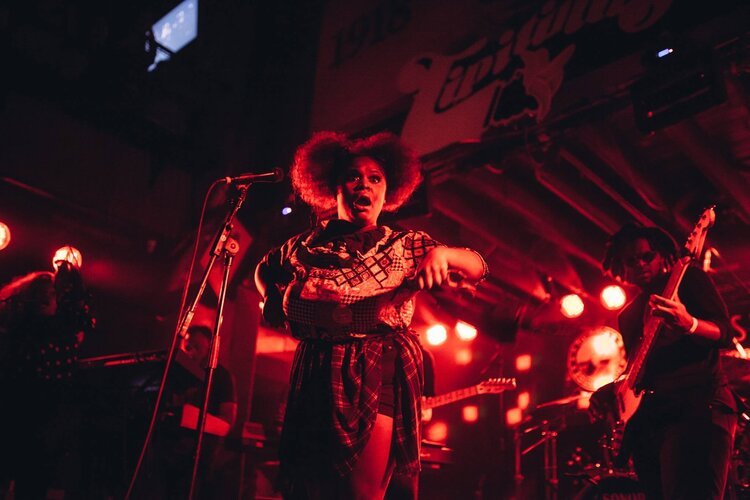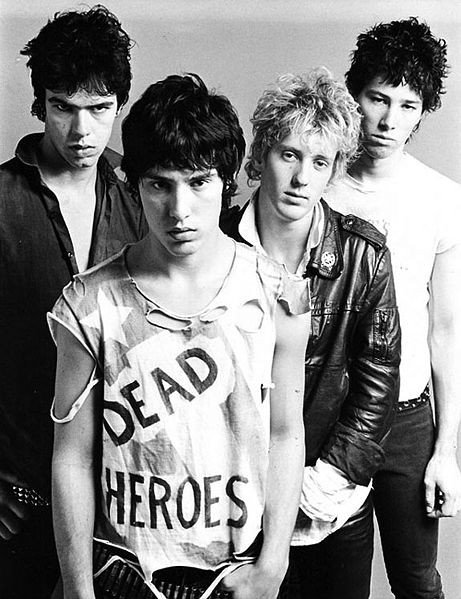Should New Orleans Become the New Nashville?

Earlier this month, a Nola.com article argued that it could. But is that a good idea?
Earlier this month, Chelsea Brasted wondered at Nola.com why New Orleans couldn’t have the kind of music industry that Nashville has. The indicators in her story certainly count as progress toward a more vibrant industry here, but a better question is whether we should want to be music industry center. It sounds like a natural fit—good music, good musicians, and a mechanism to sell them—but what would a music industry look like in New Orleans, and who would it benefit?
For one thing, the music business would look more like business than music. Record companies exist to sell—what they sell is the second concern. Nashville’s industry began to sell music with roots in the rural spaces around it, but because the emphasis is and was on selling, those roots were commodified and boiled down to reproducible components that could be reused in song after song. That pursuit of hits led from the Grand Old Opry to country music as it is today: something that now shows more influence from Bon Jovi and Sheryl Crow than George Jones and Tammy Wynette.
In short, Nashville—like Los Angeles and New York—treats music as product, not as culture as we do in New Orleans. "The music of New Orleans is sacred," Soul Brass Band manager Oren Krinsky said recently when Cirque du Soleil tried to pay the band for playing a party with tickets to their show. "When anyone who has money wants the music for free, it’s an insult to the culture. I think we should all be asking Cirque du Soleil and any other companies who do this, ‘Why are you attempting to extract this culture for free?’”
If we want New Orleans to become a music industry town, we have to prepare ourselves for the music to be less sacred.
In Nashville, the product starts at the song, with teams of songwriters generating them. Their publishing companies pitch the songs they think are most appropriate to artists’ managers and labels, who then decide what might work for the artist—with the artist’s input. Artists collaborate in the writing more than they used to, but his or her identity remains a collaborative venture. And that identity is groomed, tweaked, and revised to be sellable. Winners in the music industry are the people who sell; losers are the ones who don’t. In the Americana music community, the vague definition of “Americana” is a source of humor, but on Music Row, the definition is simple. Americana is the country that doesn’t sell.
And “sell” doesn’t mean sell respectable quantities. Major labels don’t define success in terms of artists realizing their potential and reaching the audience they can realistically expect to reach. Labels sign 10 artists with the hopes that one will become so big that he or she is on a one-name basis with America—Taylor, Gaga, Rihanna, Adele, Beyoncé—and so big that the revenue he or she generates can cover all the signings that underperformed. A mere 250,000 units counts as underperforming, and who in New Orleans sells even that many albums?
If record companies come to New Orleans, they’re not coming for the sound that is here; they’re coming to make it into something that could be bigger if they're coming for it at all. Bounce is the most marketable sound going, but it has only sideswiped mainstream, hip-hop and dance music culture and remains novel. “Bounce” is associated with Big Freedia’s reality show, a controversial Miley Cyrus moment, and a great Beyoncé video. It’s yet another dance sound that Diplo has waggled his toe in, but his success helped make bounce an EDM sub-sub-sub-genre. Still, what passes for bounce in EDM communities is barely recognizable as bounce for New Orleanians.
Jazz, funk, and jazzy funk? You could imagine electronic funk hybrids, but EDM sells tickets to festivals, not albums. “Uptown Funk” flies on the charisma of Bruno Mars, not actual uptown funk. If it did, “Feel Right”—Mark Ronson’s follow-up featuring Mystikal—would have been a similar smash. New Orleans’ musical bread and butter on its own doesn’t show the kind of commercial potential that would tempt the music industry to expand this direction, particularly when the record industry is struggling to deal with declining sales. Besides, if the industry is going to expand, Atlanta is an easily accessible city and the home for hip-hop that matters right now. You could imagine companies expanding operations there before they’d take a flier on New Orleans.
p
New Orleans has the musical talent to merit industry attention, and a growing infrastructure to support it. Still, the music industry is in the business of selling, and as we’ve seen, the major companies are far less committed to a genre or quality of music than they are to the business of selling itself.
If New Orleans were an industry town, there would be clear winners. Simple Play has done well for itself managing Big Freedia, Tank and the Bangas, and Sweet Crude, and acts that already exist on the periphery of the mainstream marketplace could benefit. More rappers would likely get paid, and a cadre of musicians would also benefit as more session gigs would emerge. But the music would undergo a change and, like country music today, live in a very mediated space from which its roots can be traced but not felt.
There would likely be secondary changes as well. An upside of living in an industry town is that the clubs would likely have better PAs as the industry standard goes up, but the entire club scene would be less informal when everybody is aware that any show could have people in the audience who could be good for their careers. The naked hustle that happens in Nashville and Los Angeles by people who hope to “make it” one way or another doesn’t happen in New Orleans right now because the stakes are too low. Change the stakes and you change the fabric of the New Orleans music community.






